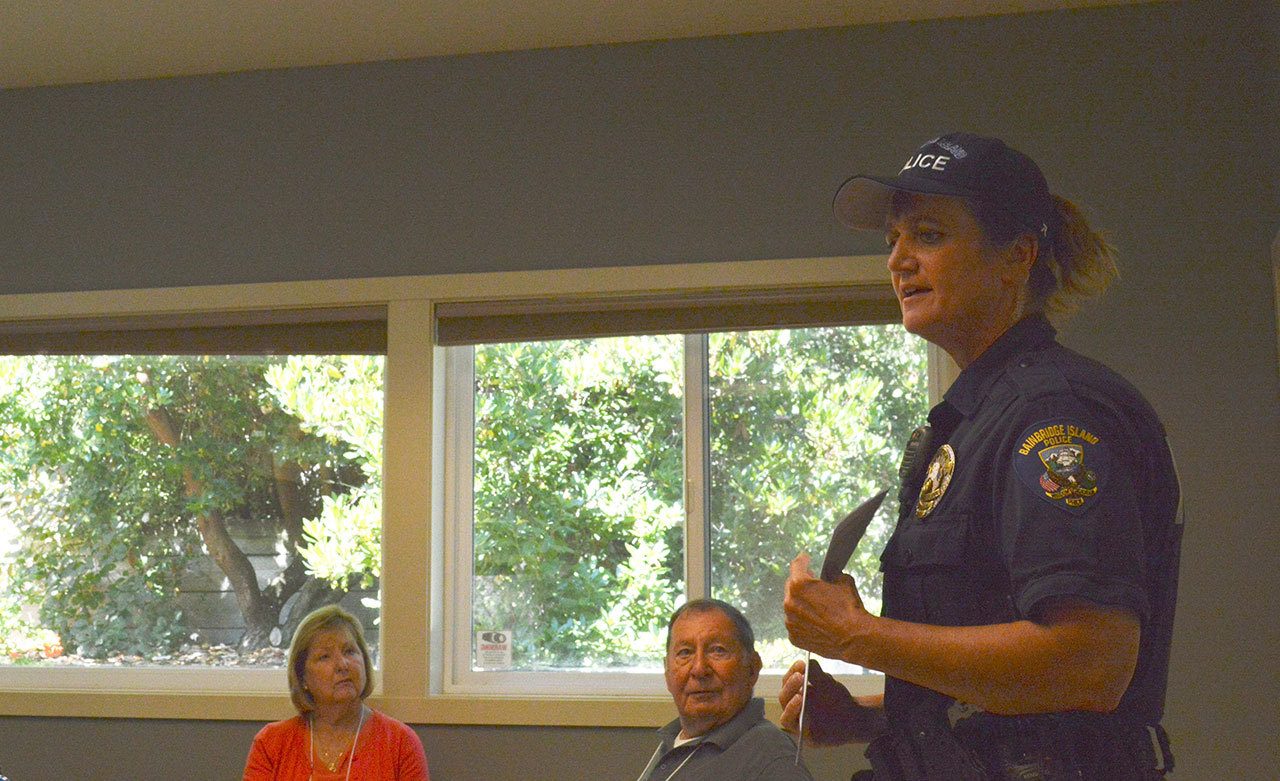The quest for eternal youth has motivated man in every epoch, from Peter Pan’s stubborn refusal to wear pants and monetize his pseudo-orphanage to Kim Novak’s face-fat injections and Juan Ponce de León’s search for a special fountain, which turned up alligators, the Sunshine State and death by arrow.
Clearly, some of us live in denial.
For the wrinkled realists in the room, who’d rather age gracefully with tai chi and a plump retirement account than enter futile skirmishes with incensed tribes or hide from online bullies (the Donald felt it imperative to mock an 81-year-old’s plastic surgery), the Aging Mastery Program has much to offer.
The 10-week class, developed by the National Council on Aging, empowers older adults to make and maintain small lifestyle changes in the realms of physical activity, medication management, healthy relationships, fall prevention, community engagement, sleep, diet and advance planning.
The content isn’t earth-shattering per se, but it is comprehensive.
“The class gives you a structure, a scaffolding where you [show up] for a determined amount of time and you learn across the board,” program manager Sue Barrington explained.
Ron Birum, 74, who considered himself equipped prior to the class on topics like exercise and advance directives, was surprised by how much he learned in the home safety session.
“I go up and down my stairs all the time and I didn’t realize how they should be set up,” he said.
The 141-page workbook provides room-by-room suggestions to cut down on hazards, from installing handrails on both sides of a staircase to using a step stool with a bar if you absolutely must use a step stool.
“A little hint or something like that almost makes the whole class worthwhile,” Birum added.
Beyond attending 90-minute meetings, participants, ages 55 and up, are encouraged to complete homework assignments and set goals using specific worksheets.
Each class, subject matter experts like Luke Carpenter (POLST forms), Marjie Hall (Hospice) and Jeff Ozimek (Healthy Relationships) stop by to help localize content. Ozimek, in particular, is a class favorite; participants love taking his personality test, which determines one’s orientation as a leader — promoter, supporter, controller or analyzer. Two seniors labeled with the former were adamant that others take the class.
Sheryl Crist, who at 72 says she feels more like 55, swears by yoga, veganism and a seaweed supplement she mail-orders from Japan called chlorella. Her biggest takeaway from the class has been to get more systematized about exercise.
“They convinced me to do a half-hour walk every morning,” Crist explained.
Socializing is another priority on her list of resolutions.
“They said being isolated was as dangerous as smoking and obesity, so it made me say, ‘OK, I am going to get out from behind my computer and out of my apartment.’”
If you’re reading this and thinking this class has nothing to offer you, you’re so spry you could fly (Oh, hey, Peter) and retirement homes are beneath you, as a 26-year-old, I beg to differ. I walked away from the senior scam session with more than a few tricks.
Sure, I’d like to believe I’d never fall for an intimidating call from “the U.S. Treasury Department” in which a menacing, anonymous man demands that I send money or face prosecution. But neither did I know the most effective tactic for dealing with telemarketers and would-be identity robbers: keep a whistle by your phone and blast whoever dare call you twice or play reverse-Big Bad Wolf, posing as your granddaughter in need of $2,000.
(FYI: That’s not a manual tip, but a strategy a lovely woman named Leslie contributed during a class discussion.)
Class discussions are electric when such a relevant topic comes up but most of all conducive to friendship. Something about the uncertainty of aging — and snacks — appears to facilitate bonding.
In fact, Bob Fraik’s cohort was so enamored that they asked to extend their program with informal meet-ups at T&C. Which means Ozimek’s team-building exercise was very effective. And these “seniors,” which is really a mean word used by younger people who haven’t yet realized their bodies are indeed fragile, are killing aging.



